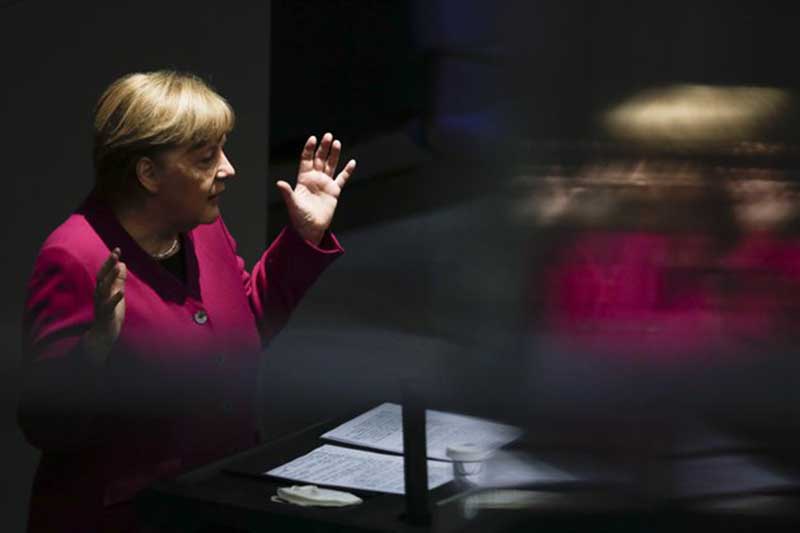

The European Union’s problems with getting deliveries of coronavirus vaccines have underscored the need for the bloc to redouble its efforts to produce its own doses, German Chancellor Angela Merkel said Thursday.
Speaking to Parliament ahead of an EU summit, Merkel acknowledged that the vaccination rollout in Germany has not gone as quickly as hoped. But she rejected criticism that not enough shots had been ordered, instead saying it was more about how many had been delivered.
“We can see clearly that British facilities are producing for Great Britain. The United States isn’t exporting, and therefore we are dependent upon what can be produced in Europe,” she said.
At the summit, she said European leaders planned to talk about how the bloc can ensure a steadier vaccine supply for the future.
Merkel has previously urged the EU to be “very careful” with vaccine export bans. But she has said she supports efforts by the bloc’s executive Commission to ensure that vaccine contracts are fulfilled, citing the supply problems the EU has had with the AstraZeneca shot.
She told Parliament that in addition to ensuring its own supply, the EU must work with other vaccine-producing countries to ensure there’s enough vaccines available for everyone around the world who needs it.
“If we do not succeed with that, we will be confronted again and again with mutations, which raise the possible risk that the vaccines are no longer effective,” she said.
Germany has registered more than 75,000 deaths since the outbreak of the pandemic. The country’s disease control center reported 22,657 new confirmed daily cases Thursday, up from 17,504 new daily cases a week ago.
“We are in the third wave, and again seeing exponential growth,” Merkel cautioned.
Merkel and state governors earlier this week agreed on a new framework to try and slow the spread of the virus, though she backed down from a planned 5-day shutdown over Easter.
Restaurants, bars and many leisure facilities remain closed. A plan drawn up earlier this month to allow limited reopenings — of shops, for example — features an “emergency brake” under which regions are supposed to reimpose restrictions when the number of weekly infections exceeds 100 per 100,000 residents on three consecutive days.
Germany is currently recording 113.3 weekly new cases per 100,000 residents nationwide, with wide regional variations.
Merkel urged Germans to get vaccinated as soon as they can and to use the coronavirus tests being provided as a “bridge” to help slow the spread of the virus until enough people have been vaccinated.
“The more that we test, the less we must restrict,” she said.
She said with the vaccines and the increased tests, a “light at the end of the tunnel is visible” and urged Germans to be as positive as possible.
“You can’t achieve anything if you only ever see the negative,” she said. “It is not for nothing that it’s said it is critical whether the glass is half full or half empty. If it’s always only half full, we won’t be able to develop the creative powers necessary as a country to get out of this crisis.”
___
Follow AP’s pandemic coverage at https://apnews.com/hub/coronavirus-pandemic,https://apnews.com/hub/coronavirus-vaccine and https://apnews.com/UnderstandingtheOutbreak